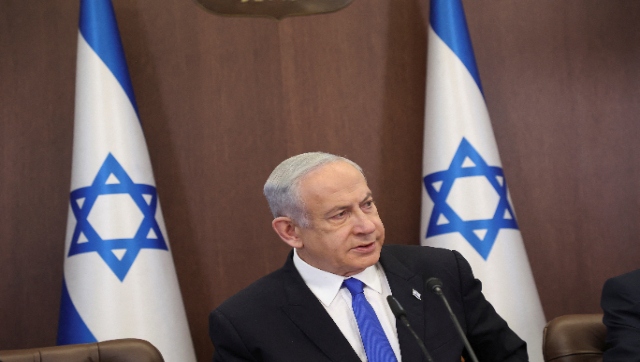In the ongoing conflict between Israel and Gaza, day 41 has witnessed a controversial development – the main target being Gaza City’s Al Shifa Hospital. International laws protect hospitals and medical centres, making the choice to target them a subject of global scrutiny.
Israel claims that Hamas militants are using Al Shifa Hospital as a base. Video evidence released by the Israel Defence Forces (IDF) shows weapons allegedly found within the hospital premises, including AK-47s, grenades and military uniforms. However, these claims are yet to be verified and scepticism exists, especially in the Arab world. Israel’s decision to target a hospital, a protected facility under international law, raises concerns and demands thorough verification of the allegations. Adding to the controversy, Israel posted two versions of a hospital walkaround video, raising questions about the authenticity of the evidence. The first version was deleted and an updated version was later released, prompting the need for an official explanation. Continued attacks outside Al Shifa Meanwhile, attacks outside Al Shifa continue, with Israel targeting the residence of Hamas chief Ismail Haniyeh. The airstrikes, however, did not find Haniyeh at home, highlighting the ongoing efforts to dismantle Hamas leadership. As the conflict persists, the people of Gaza are enduring increasing suffering, with the death toll surpassing 11,000, including a significant percentage of children. The collapse of communication and medical services makes it challenging to obtain precise figures, and the situation is poised to worsen. Global response and diplomatic pressure The United Nations Security Council (UNSC), after four failed attempts, finally passed a resolution on day 40 of the war. Backed by 12 members, the resolution calls for humanitarian pauses and corridors. However, three permanent members, including the US, the UK and Russia, abstained, signalling potential limitations in its effectiveness. Israel’s rejection of the resolution, coupled with the controversial targeting of a hospital, may erode global support. The political fallout intensifies as the conflict deviates from the initially designated areas. Prime Minister Netanyahu’s warning of reaching all over Gaza contradicts the earlier limited scope of the operation. “We were told that we won’t enter Shifa - we entered. And in this spirit we say a simple thing - there is no place in Gaza that we will not reach. There is no hiding, no shelter, no refuge for the murderers of Hamas,” said the Israeli prime minister. The global community, especially the United States, is facing pressure to intervene and call for a ceasefire. President Joe Biden, while refraining from endorsing a ceasefire, warned against Israel’s occupation of Gaza, emphasizing the need for Hamas to lose its capacity for violence. “With regard to when is this going to stop, I think it’s going to stop when Hamas no longer maintains the capacity to murder and abuse and just do horrific things to the Israelis,” said President Biden. Beyond military implications, Israel faces internal challenges. Opposition leader Yair Lapid is calling for Netanyahu’s resignation, seeking a change in leadership within Netanyahu’s party. The increasing civilian casualties and the plight of hostages add to the mounting pressure on the prime minister. As the conflict unfolds, Israel’s controversial actions, particularly the targeting of a hospital, have sparked global concern. The situation remains dynamic, with diplomatic efforts and internal pressures shaping the course of events. The potential ramifications for Israel’s global standing and the well-being of civilians in Gaza add urgency to finding a resolution to the conflict. Views expressed in the above piece are personal and solely that of the author. They do not necessarily reflect Firstpost’s views. Read all the Latest News , Trending News , Cricket News , Bollywood News , India News and Entertainment News here. Follow us on Facebook, Twitter and Instagram.


)

)
)
)
)
)
)
)
)



